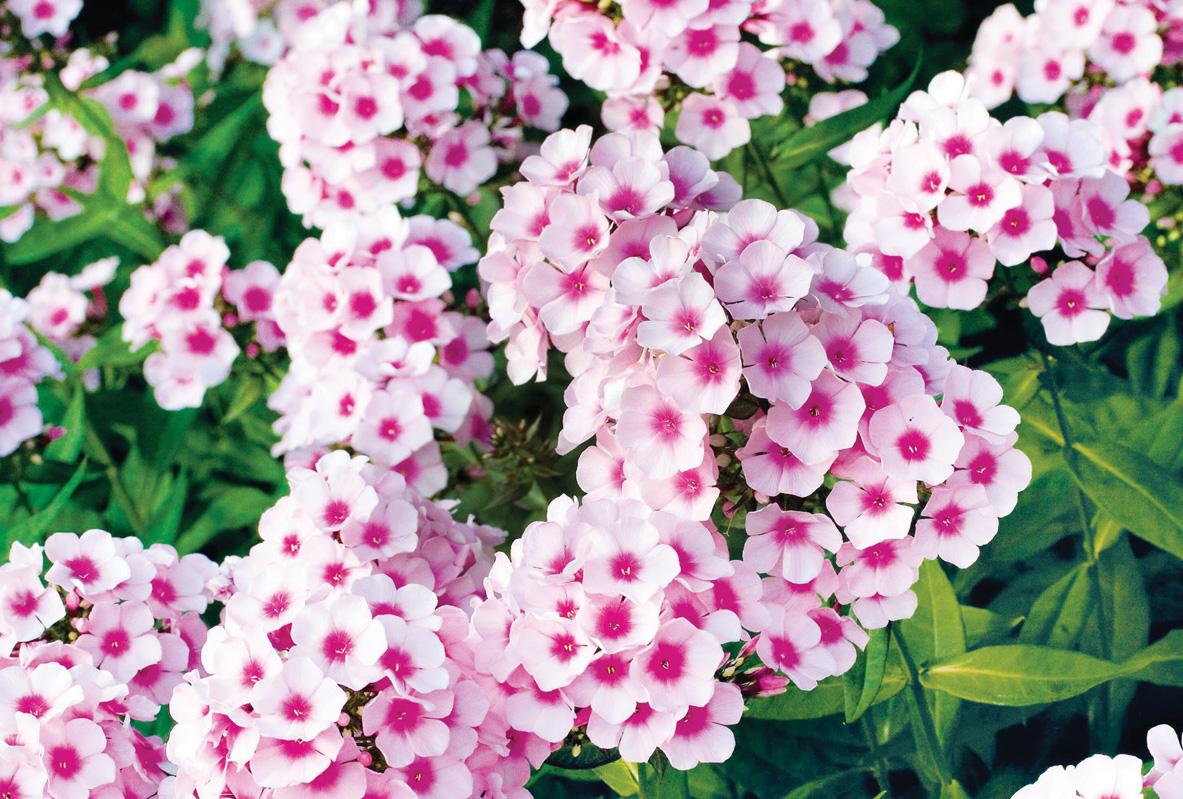
PHLOX are among our most popular perennials. All phlox feature individual flowers made up of a ring of five broad petals opening from prettily twisted buds and gathered into clusters – sometimes large cone-shaped clusters filled with many flowers, sometimes small, upward-facing clusters.
They fall into two broad groups: the taller hardy perennial phlox are important features in our mixed and herbaceous borders, and for cutting. These are mainly sun-lovers, but most are happy in dappled shade.
The shorter, rock-garden types, often low, compact and creeping, are mainly sun-lovers and spread into a low mat, the leaves hidden by the dazzling spring flowers.
Woodland phlox, naturally, enjoy a little shade and are a little taller than the rock-garden phlox with airy flowerheads above the steadily spreading crown.
Hardy perennial phlox
From tight, slowly spreading clumps, vertical stems from 3-5ft (90cm-1.5m) high lined with pairs of pointed green leaves. Topped in summer by domed, or sometimes cylindrical, flowerheads packed with flowers about ¾-1in (2-3cm) across, they come in almost every colour of the rainbow, except yellow. Many are strongly scented, although for a few people the scent can be difficult to detect.
Phlox maculata and Phlox paniculata are the two main species grown, with new varieties and hybrids appearing all the time. Both die back to the ground for winter. Older, traditional varieties tend to be relatively tall, but with good scent although they may be susceptible to disease. Modern varieties tend to be shorter, are less likely to be well scented but more likely to be resistant to mildew.
In most gardens hardy perennial phlox enjoy plenty of sunshine, although they are unsuitable for hot, dry parts of the country.
この記事は Amateur Gardening の August 19, 2023 版に掲載されています。
7 日間の Magzter GOLD 無料トライアルを開始して、何千もの厳選されたプレミアム ストーリー、9,000 以上の雑誌や新聞にアクセスしてください。
すでに購読者です ? サインイン
この記事は Amateur Gardening の August 19, 2023 版に掲載されています。
7 日間の Magzter GOLD 無料トライアルを開始して、何千もの厳選されたプレミアム ストーリー、9,000 以上の雑誌や新聞にアクセスしてください。
すでに購読者です? サインイン

To dig or not to dig?
Should we be carrying out a full dig on plots now? Bob considers the pros and cons of the 'autumn dig' debate

The box ball blues
As if his beleaguered box hadn't already taken a beating, Toby now has to deal with some hungry box caterpillars

Save your own seeds
Masterclass on: seed saving

Strange sightings
Three unusual insects turn up in Val's garden in one day

A bolt from the blue!
Cornflowers are perfect for garden and vase

Winter moth prevention
Ruth shows you how to avoid maggoty tree fruits

Create a winter container
There are as many options as in summer

Lightweight gardening tools
AS well as being good for our mental health, gardening is also great exercise.

Autumn price round-up
AG finds better bargains in lesser-known brands

Rudbeckias
Rudbeckias are ideal for sunny summer patios and borders, with some able to survive our coldest winters